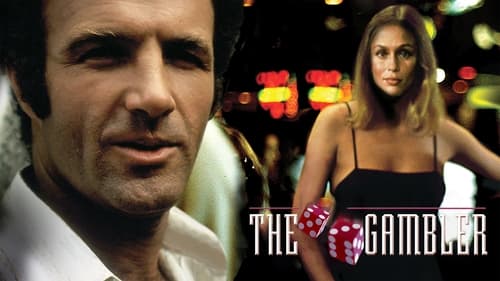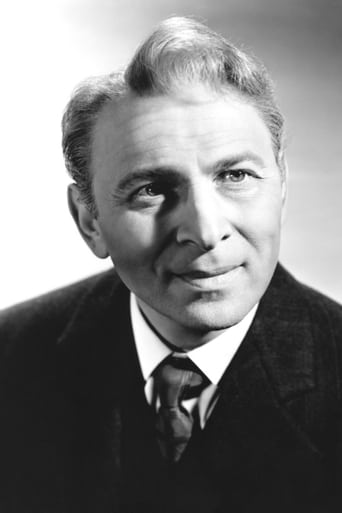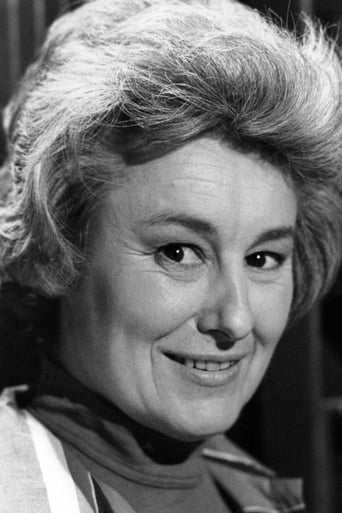Limerculer
A waste of 90 minutes of my life
Kidskycom
It's funny watching the elements come together in this complicated scam. On one hand, the set-up isn't quite as complex as it seems, but there's an easy sense of fun in every exchange.
WillSushyMedia
This movie was so-so. It had it's moments, but wasn't the greatest.
tomsview
The air of anticipation and sense of dread that runs through "The Gambler", eventually gives way to a finale that is impossible to forget. Sam Goldwyn once said that it is the last five minutes of a movie that makes it memorable. "The Gambler" has that memorable last five minutes. In a performance of almost preternatural stillness, James Caan plays Axel Freed, a college professor with an addiction to gambling, Gambling rules Axel's life to the point where it undermines his loyalty to his family, his girlfriend and ultimately himself. He gambles on anything, but particularly college football and basketball games. Although he is absorbed with gambling, he comes from a privileged background. It is this back-story that gives "The Gambler" such an unusual edge. His mother is a leading surgeon at a large city hospital and his grandfather, who he reveres, is a wealthy Jewish immigrant who has made good on the American Dream. We learn that while his family's expectations of him are high, Axel has been indulged all his life.Axel is also seriously in debt and it is a condition that does not change much throughout the movie. Although he wins large sums of money, he invariably loses it again. Dangerously, he is in debt to people who do not forgive non-payment. After borrowing money from his mother to pay off the debt, he takes his girlfriend to Las Vegas and gambles it instead. It is a considered decision; it is as though he is forcing the odds to the point where he will be destroyed. He wins enough to pay all his debts including the one to his mother. Inevitably, he loses it all in a single reckless wager. His girlfriend, Billie played by Lauren Hutton, is the sort of woman who is attracted to men who exude a sense of danger. However, Axel proves even too reckless for her.To save himself, Axel is forced to convince one of his students to throw an upcoming basketball game. Although his debt is struck off, morally he has descended to the lowest point in his life. Finally, he receives the horrible punishment he seems to seek by pushing his luck beyond what it will bear in the wrong end of town. The film ends with a cinematic image not easily erased from the memory. If the film delivers any message at all, it is that the objective of the chronic gambler is to lose. Apparently the screenplay by James Toback was largely autobiographical; he must have been seeking some kind of catharsis through the painful self-revelations in this story.Karel Reisz directed the film in a dispassionate manner that adds to its power. James Caan gives a remarkable performance – what at first seems a rather wooden approach turns out to be the perfect approach. This is a film with little sympathy or compromise. It is difficult for the audience to like Axel. He is so alienated from everyday life and the normal things that give people joy that he is the epitome of the outsider. He is a man for whom life has little zest, the only way he can lift his emotional level is to walk along the edge of the precipice. An unusual background score helps give the film its all-pervading mood. Based on Mahler's Symphony #1, "The Titan", the score was arranged by Jerry Fielding, a remarkable composer in his own right. Despite its classical origins, Mahler's work in this film sounds contemporary and ominous. This is a film that sneaks up on you, it's only when it's over that you realise how remarkable it really is – without a doubt, one of the most intriguing films of the 1970's.
David Phillips
We all have movies that we champion and we often feel like we champion them alone. They rarely get featured in critics' lists, box office lists and may even get featured in worst movie lists. I will be presenting reviews of what I consider "hidden gems" and I also invite you to contribute.So, a new topic is born "Writer Recommends", in which I will be presenting reviews of some of the movies that I think are fantastic and that you should see. I'd like to think of them as hidden gems, but I'm realistic enough to know that many of the movies for which I feel I am the sole champion, will in fact be loved by many. As we all know, when it comes to one person's opinion of a movie, there is no right or wrong: even if we do still continue to debate that long into the night.If you have a "Writer Recommends" suggestion or want to send me a review to post, let me know. I'm going to be totally autocratic, so I will make (hopefully well informed) judgements on whether to post.Next Up: Writer Recommends #1: The Gambler see www.writeronthestorm.wordpress.com
Mpup54
Just about everyone who has posted a reply about the shocking ending was simply left too much in the dark to realize that it tied together a different root demise of Axel Freed than gambling.Just as a compulsive behavior leads to compulsive gambling, the root evil of Axel Freed was that he had a masochist behavior. When you look a little closer at all the scenes where he acts out this kind of behavior, it makes more sense. The problem lies in that the casual observer is only looking at the problem gambling aspect. There is more to this guy than just that.The ways he handles his relationships with his mother, girlfriend, grandfather and feelings at the end towards the basketball player ALL indicate there is masochist behavior involved. These are more than just selfish acts. There is some actual self hatred going on as well. Without giving away the final scene, this scene further accentuates the point by sending himself into that situation. The final scene was a conscious act, not something resulting from random chance or risk.So despite the movie having some gambling theme to it, this really wasn't necessarily about gambling addiction. It was about the nature of Axel Freed. If the movie had no gambling scenes in it at all this point would be more readily identifiable.The only real oddity in the final scene is the placement of the final scene. If this scene was placed somewhere in the middle of the movie, the underlying theme of his masochist pattern of behavior would have been more easily identified with. Because the movie started with a gambling scene, we all assumed it was just about gambling. Wrong!Its a tricky concept to catch the first time. Watch this movie again with this concept in mind and the movie will make more sense.
EThompsonUMD
"The Gambler" (1974) is a riveting drama about a man who - like many young adults in the baby boom generation - rejects the world of privilege and comfort he has been born into. Rather than turning to some form of counter-culture politics, however, Alex Freed (James Caan) holds an establishment job as a professor of English while pursuing "the juice" of financial, social, and even physical risk and pain during his considerable free time.Like Dostoyevski's Underground Man, to whom the screenplay pays homage in an early scene of Freed lecturing to his students at NYC (i. e. CCNY), "the gambler" rejects the middle class world of reason and social convention and instead embraces the irrational, the realm of will and desire where two plus two can equal five and where poets, athletes, and addicts can "know" and experience things that ordinary human beings living in the rut of mundane existence cannot.Unfortunately for Freed he will never be a poet although, as a literature professor, he can quote Shakespeare, e.e. cummings, and Walt Whitman with anyone. He can also turn an original phrase or two and lead his relatives, friends, and other less literary folk to believe that he has great books in him. But the truth is that he's a third rate talent stuck in a $1500 a month gig trying to wheedle literary appreciation out of reluctant undergrads who are obviously going through the motions to get paper qualified for one pragmatic goal or another.He is also not a great athlete although he kids himself about how he might have been a star basketball player - even, at one point, stopping at a playground in Harlem to take on a local 15 year old hot shot in a game of one-on-one, betting $20 to a dime that he will win. He gives the hot shot a pretty good game, but loses, thus establishing the real extent of his athletic talent for us - and perhaps himself - to see. No, the only sure and easy way he can get the juice is through gambling and the self deceptions about winning and losing that his compulsive behavior entails.Considering the barrage of searing insults that Harvard-educated Axel Freed hurls at the Brown University (my alma mater) football team, I would like to say very bad things about this film, but I'd be lying. Written by heralded screenwriter James Toback ("Fingers," "Bugsy," etc.) and featuring one of James Caan's finest performances, "The Gambler" has deservedly become a 1970s cult classic.







